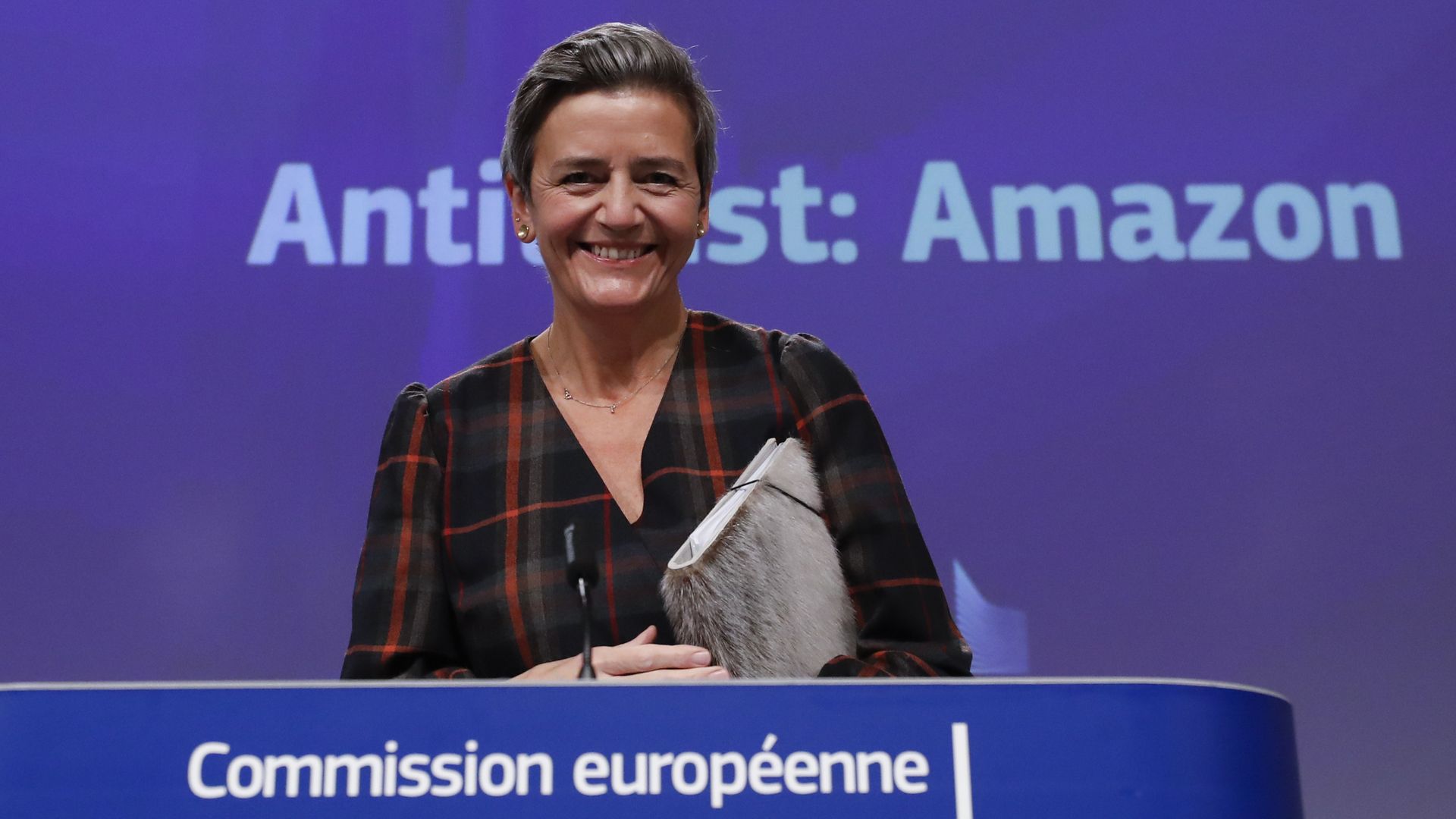European Union hits Amazon with antitrust charges
Add Axios as your preferred source to
see more of our stories on Google.

European competition commissioner Margrethe Vestager. Photo: Olivier Hoslet/Pool/AFP via Getty Images
EU regulators have filed antitrust charges against Amazon, claiming the company is acting anti-competitively when it uses data from sellers on its marketplace to develop its own products.
Why it matters: Europe could seek billions of dollars in fines from Amazon, and regulators' findings could inform the work of U.S. antitrust enforcers. The Federal Trade Commission reportedly started looking into Amazon's treatment of third-party sellers last year.
What they're saying: EU regulators believe "the use of non-public marketplace seller data allows Amazon to avoid the normal risks of retail competition and to leverage its dominance in the market for the provision of marketplace services in France and Germany — the biggest markets for Amazon in the EU," according to a statement.
- “We disagree with the preliminary assertions of the European Commission and will continue to make every effort to ensure it has an accurate understanding of the facts,” a spokesperson said in a statement, noting that “there are larger retailers in every country in which we operate” and that more than 150,000 European sellers use Amazon as a marketplace.
Between the lines: The case seeks to establish two core tenets of a successful antitrust action: Namely, that a firm has overwhelming power in a clearly defined market — in this case, e-commerce portals in two specific countries where third parties can sell goods — and that it uses that power to cause harm.
Meanwhile: In tandem with the charges, the EU's executive commission announced a new investigation into whether Amazon is favoring itself or sellers that rely on Amazon for warehousing and shipping merchandise under the "fulfilled by Amazon" program when it decides which seller of a given product lands in the "Buy Box." That's the default and most prominent option for buying a particular product on Amazon.
Editor’s note: This story has been updated to include comment from Amazon.
